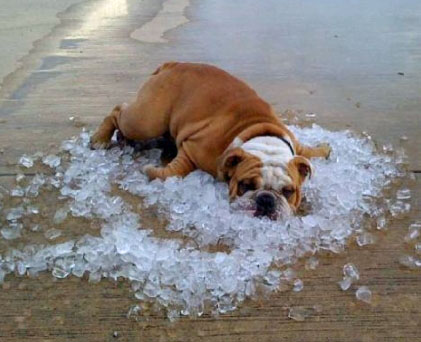
| Return to Willamette View Website Return to Resident Website |


Global Climate Change -- Facts, Links, News, Mitigation and Adaptation Ideas
A major motivation for our group includes concern about rising global warming dangers. Considerable scientific evidence exists that suggests future generations of both humans and animals face very high risks to life and limb. See Joe Romm's blog for current details. For another good source of information about these issues, see Inside Climate News

Global Warming's Terrifying New Math
An easy and powerful bit of arithmetical analysis first published by financial analysts in the U.K. and brought to readers of Rolling Stone magazine (of July 2012) by Bill McKibben. A very important
article that highlights the daunting reality of what inhabitants of the earth are up against. Click here to access a summarized, printable version of the McKibben article (2 pages, original is 10 pages).Al Gore: Public Conditioned to Accept Atmosphere as 'Open Sewer', link to 8 minute video of broadcast on PBS-TV, 31 January, 2013
Interview that included discussion of his new book entitled The Future: Six Drivers of Global Change
Link: http://www.pbs.org/newshour/rundown/2013/01/al-gores-examines-six-drivers-of-global-change-in-new-book.htmlCitizens Climate Lobby - a national effort to get the 103rd Congress to pass Climate Change legislation
Purposes: To create the political will for a stable climat .and to empower individuals to have breakthroughs in exercising their personal and political power. Currently, there are two groups in Oregon (Portland and Bend) and 76 more around the USA and Canada. For details, visit their website at: http://www/citizensclimatelobby.org And, listen to or sign up to participate in a national telephone conference call every Wednesday. It's free, but you need a pass code to participate.Click Here to Listen to the January Conference Call
A Weekly CCL Special Introductory Call is held every Wednesday at 5:00 PM Pacific. This call is for people who are new to CCL and would like to know more about it, what we do and how we do it. Participants on the call will receive all relevant information about starting or joining a CCL Group. Email Mark Reynolds for more information.
Click Here for Citizens Climate Lobby Intro Call Registration
POLL of the Day, December 15, 2012, finds substantial and growing public interest in Global Warming Issues
Both political parties should add climate change to the list of issues on which they diverge from public opinion. In a new Associated Press/Gfk poll, four out of five people say that global warming is a "serious" problem for the future if the government does nothing. In a separate question, 57 percent said the U.S. government should do "a great deal" to tackle global warming, and another 20 percent believe the government needs to take "some action."How Climate Change may affect Oregon and What Can We Do About It?
Here is a link to an article on this topic from the News-Register (Yamhill Valley) of November 16, 2012, by reporter Nicole Montesano
Oregon Global Warming Commission - Report to the Legislature, February 2011, full report is 96 pp. (The next report to the legislature is expected to be released in March, 2013)
Executive Summary
Oregon continues to make progress toward meeting its legislated climate change goals (ORS 468A.205).
Based on the most recent data available (for 2008) greenhouse gas emissions have oscillated in recent years around a flat emissions trajectory. This flat emissions trajectory trend is expected to continue through 2010. Therefore, it is expected that future data will demonstrate that emissions will have been “arrested” by 2010, meeting the first part of Oregon’s greenhouse gas reduction goal for 2010.
The second part of the 2010 reduction goal – to begin reducing greenhouse gas emissions – is less clear.Greenhouse gas emissions are expected to begin a downward emissions trajectory by 2012 based on the predicted impacts of several key policies and programs. There may be a larger than average oscillation in emissions before that downward trend begins. The key point is that the general emissions trend through 2010 should be flat, with downward sloping emissions following a few years thereafter.
Progress toward Oregon’s 2020 and 2050 goals – to reduce greenhouse gas emissions by 10 percent and at least 75 percent below 1990 levels, respectively – remains challenging. Rising to this challenge the Commission initiated a “Roadmap to 2020” project.
Six technical committees were convened to work on sector-based strategies for meeting these two emission reduction goals. These committees represented stakeholders and other experts from the energy, land use & transportation, industrial, agricultural, forestry, and materials management sectors. At present (February, 2013) the Commission has no budget and no staff and no prospects for gaining such resources from the legislature.
As a first step these committees envisioned what their sector might look like in 2050 in an Oregon that had met its long-term reduction goal. The committees then worked backward from these visions to 2020 by brainstorming, sorting through, and highlighting key actions to help meet the 2020 and 2050 reduction goals. These key actions are listed on the next page.
The “Roadmap to 2020” will be refined, based on a public comment process planned for 2011 and by integrating results from ongoing processes (e.g., the transportation greenhouse gas planning work from SB 1059 in the 2010 session).Oregon made substantial progress this past biennium in its planning work to prepare for and adapt to the impacts of climate change. The first Oregon-specific assessment of climate change impacts was released by the Oregon Climate Change Research Institute (OCCRI) in December of 2010. In addition, State agencies collaborated with each other and OCCRI to produce, with Commission input, the first comprehensive Oregon policy framework for climate change adaptation planning in December of 2010.
The Commission acted on other fronts as well, working with State agencies and local governments to implement existing policies, and commenting on federal climate policy choices. To meet its public education responsibilities the Commission designed and launched its www.keeporegoncool.org website.
The site serves as the administrative home for the Commission as well as a key outreach and education tool. The electronic version of this report is available from this site, as well as the full version of the Interim Roadmap to 2020 report and numerous other resources for Oregonians on climate change.
Last updated: January 18, 2015